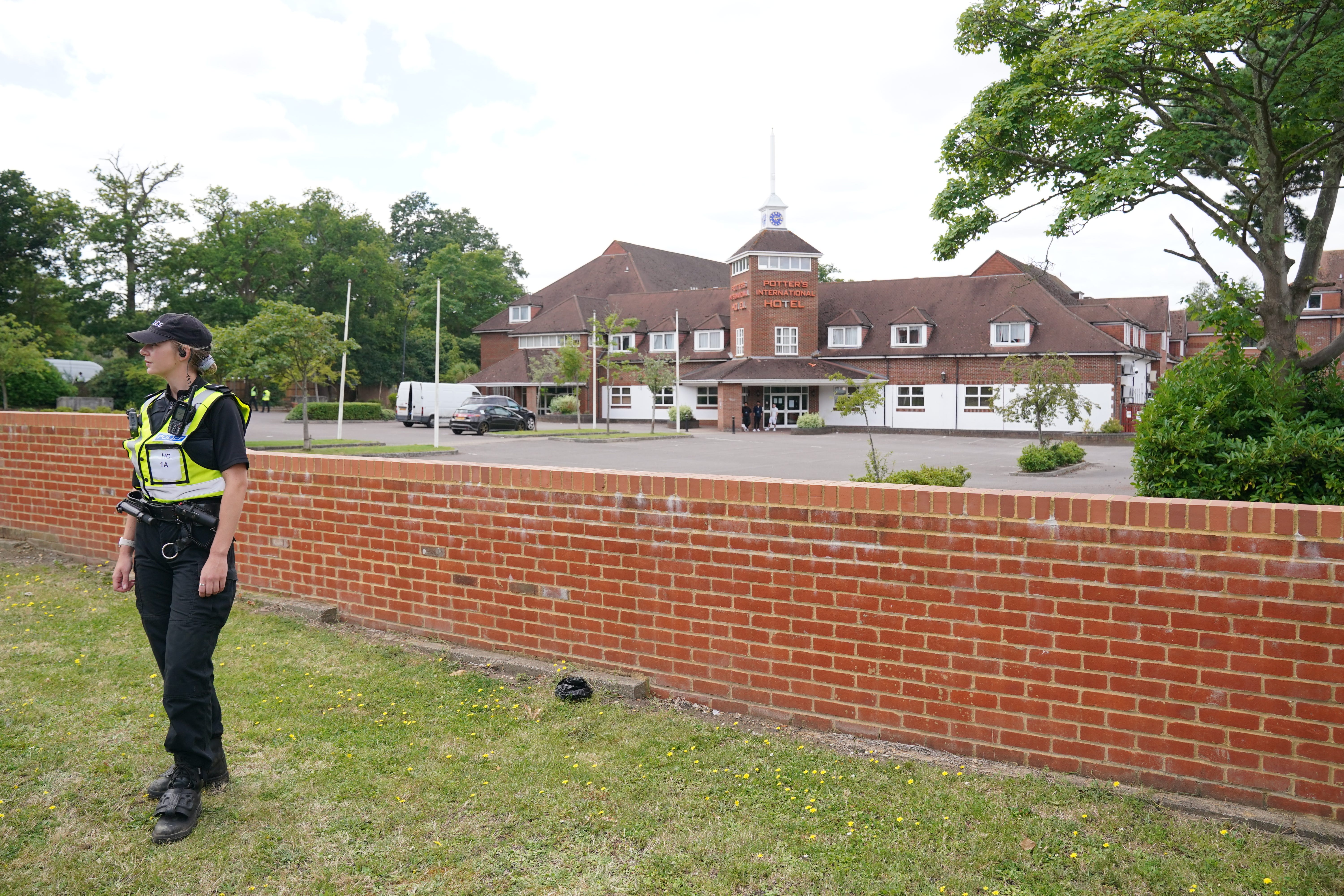Almost 30,000 asylum seekers in hotels, but number has fallen
Hotels housing asylum seekers were targeted in violence this summer.

Your support helps us to tell the story
From reproductive rights to climate change to Big Tech, The Independent is on the ground when the story is developing. Whether it's investigating the financials of Elon Musk's pro-Trump PAC or producing our latest documentary, 'The A Word', which shines a light on the American women fighting for reproductive rights, we know how important it is to parse out the facts from the messaging.
At such a critical moment in US history, we need reporters on the ground. Your donation allows us to keep sending journalists to speak to both sides of the story.
The Independent is trusted by Americans across the entire political spectrum. And unlike many other quality news outlets, we choose not to lock Americans out of our reporting and analysis with paywalls. We believe quality journalism should be available to everyone, paid for by those who can afford it.
Your support makes all the difference.There were almost 30,000 asylum seekers in hotels across the UK at the end of June, Government figures showed.
The total of 29,585 on June 30 was down from 34,530 at the end of March and from 50,546 on June 30, 2023, according to the Home Office data.
Hotels housing asylum seekers were targeted in violence this summer, as far-right protesters took to the streets for days of disorder which was met with counter-protests by anti-racism groups and swift prosecutions through the courts.
The Refugee Council repeated its opposition to the use of hotels to house asylum seekers, saying the attacks had shown how this group can be vulnerable to being targeted.
Imran Hussain, executive director of external affairs at the charity, said: “Despite some progress on reducing the use of hotels, there were still nearly 30,000 people seeking asylum living in hotels at the end of June.
“Hotels should never be used as accommodation, as people in asylum hotels are isolated, struggle with their mental health, and may be targeted by far-right attacks, as we saw a few weeks ago.”
Among some of the violent scenes seen at the beginning of August, rioters smashed the windows of the Holiday Inn Express in Rotherham before starting fires, with masked men hurling lengths of wood, chairs and bottles and at least 10 officers injured.
A similar incident played out at a Holiday Inn hotel in Tamworth, Staffordshire, where reports suggested asylum seekers were also being housed, in a scene which saw fires, smashed windows and missiles being thrown at officers.
The latest data showed that on June 30 more than a third (38% or 11,226) of asylum seekers in hotels were in London, followed by 11% (3,122) in the North West.
Hotels in the South East and West Midlands each hosted 10% of asylum seekers, with 3,002 and 2,858 respectively.
Wales had the lowest number with 53 asylum seekers in hotels on June 30 (0.2%), while Scotland had 1,357 (5%) and Northern Ireland had 301 (1%).
Iran was the most common nationality among asylum seekers in hotels at the end of June, accounting for 14% (4,036) of the total.
This was followed by Afghans (3,611 or 12%), Iraqis (2,518 or 9%), Eritreans (1,851 or 6%) and Syrians (1,680 or 6%).
As the latest figures were published on Thursday, campaigners reiterated their call for people seeking asylum to be given the right to work – saying it could “increase community cohesion”.
Currently those claiming asylum in the UK are not usually allowed to work while their claim is being considered.
The Lift the Ban coalition, made up of think tanks, faith groups and refugee organisations among others, described the policy as “regressive, hostile and self-defeating”.
Tim Naor Hilton, chief executive of Refugee Action, which is part of the coalition, said: “The new Government could improve people’s lives, increase community cohesion and give a huge boost to local economies by giving people seeking asylum the right to work.
“People stuck in the system have valuable skills, education and experience that they are desperate to use but are instead forced into dependency by this self-defeating policy.
“Change is backed by business, MPs from across the political divide and more than four in five members of the public. Lifting the ban on work is common sense.”